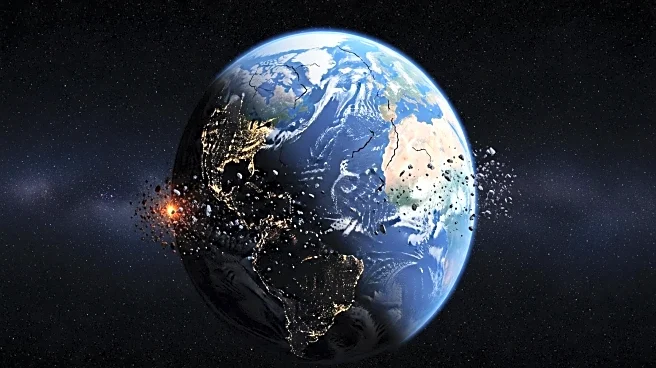What is the story about?
What's Happening?
Earth's mass is gradually decreasing due to the escape of light gases like hydrogen and helium from the upper atmosphere, offset by the accumulation of meteorites and cosmic dust. Annually, Earth loses up to 60,000 tonnes, resulting in a net decline. This change is minimal compared to Earth's total mass, equating to a loss of about 45 parts per billion over billions of years. The mass loss is further impacted by spacecraft leaving Earth, contributing to the overall reduction.
Why It's Important?
Understanding Earth's mass changes is crucial for scientific research and environmental studies. The loss of atmospheric gases can affect climate and atmospheric composition, influencing global weather patterns and ecological systems. The accumulation of space debris poses challenges for space exploration and satellite operations. These findings highlight the need for continued monitoring and research to mitigate potential impacts on Earth's environment and technological advancements.
Beyond the Headlines
The gradual loss of Earth's mass raises questions about long-term environmental sustainability and the impact of human activities on planetary systems. Ethical considerations regarding space exploration and debris management are increasingly relevant. The balance between technological progress and environmental preservation is a critical issue for future generations. This development underscores the importance of international cooperation in addressing global challenges related to space and environmental conservation.















